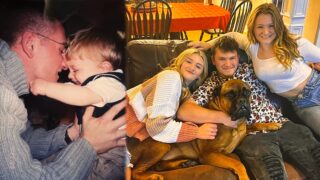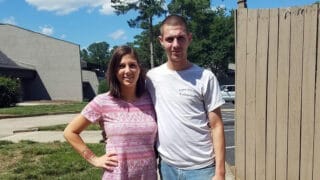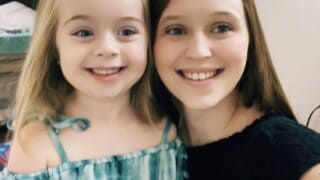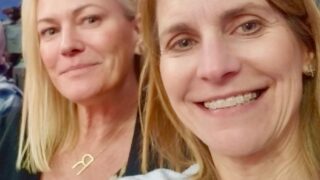
Like so many other young men and women lost to an overdose in 2017, Alex Pergament was beloved — by his parents, friends, and extended family. He was generous with his time, volunteering wherever and whenever he could, and taking in friends who needed a place to live. A natural leader, Alex was an Eagle Scout and Patrol leader. He played the tuba in his high school symphonic band, and was later chosen for the regional Massachusetts orchestra. With high SAT scores, Alex gained early admission to a prestigious college. He started a cryptocurrency company before most people ever heard of such a thing. Whether he was writing about paintball competitions, focused on gaming, or cooking, Alex was enthusiastic and fun to be around.

Alex is also the inspiration for a powerful documentary focused on seven Massachusetts families, all of whom lost a son or daughter to an overdose. Behind this film are two remarkable women who turned their joint grief into an effort to defeat stigma and shame: Andrea Pergament, his mother, and Patricia Kinahan-Smith, a longtime friend.
Family
TRISH: Andi and I have been friends forever, since Alex was a baby. Our husbands are as close as brothers – so Vinny and me, Russel, Andi, and Alex have been like an extended family. Andi and I have shared many experiences together and it has created a very strong lifelong bond. We’ve had many struggles over the years and we have always been in each other’s corner for support.
Russel, Alex’s dad, is an amazing man. However, as a child, there are things you just can’t talk to your parents about. My husband Vinny was like a second dad to Alex. Everything from playing out in the yard when he was a toddler, hiding in the leaves, and then when he was a teenager Vinny let him drive his truck. Alex was able to have such a relationship with Vinny that a lot of kids don’t have.

ANDREA Trish has been a profound help to me, a gift in my life, a friend and a sister. Her intelligence, compassion and wide range of experience with family and medical matters have been a resource I needed and could not have readily found elsewhere. Family can be chosen, as was the case with Trish and Vinny for Alex.
TRISH If you met Alex, you loved him from day one. He was a kind, loving, compassionate, funny, kid so full of life. There are so many of those children out there so full of life yet they are suffering in silence. They should know who and where to turn for help as they face the battle of their young lives…Sometimes it just takes a special person to make a difference for a child. As much as parents love their child it is often hard for a child to be as honest with them. The key is for parents to find a special someone who is non-judgmental and can nurture a special bond with their child.

First Signs
ANDREA: Sometimes I looked at him and I didn’t know. Was it his eyes? All that time you’re looking for signs in their body… the thing about Alex is that he was so smart and so functional that he could be taking stuff and he could just mask it. You would never know. I did not know what to do. We were alone in this…
Some people knew and didn’t tell me, or they were thinking of telling me but didn’t. I wish they had. I desperately wanted to know what was going on with him. I urge people who know to share their concerns, don’t be afraid to tell the parents, to tell anybody.
TRISH: Do you think sometimes that people are afraid because they think they won’t be believed and then a friendship is destroyed?
ANDREA: If you trust that person you know they are not going to make rumors up and say something that’s not true – especially about drugs. And if they are not 100% sure, they could say, “You know, I’m not 100% sure but this is something you should investigate.” If you see something, say something, don’t be afraid. Say it. Don’t be afraid to tell — I didn’t know things and they didn’t tell me….
But if you help one person, just one person, you can change that person’s life. So how do you do that? Do you tell them the kinds of things they can do or not? It’s not easy because you don’t want to be presumptuous or seem like you’re meddling. But you have to overcome that hesitation because a life is at risk.
TRISH: I think so many people are afraid to say; my son or daughter is involved with drugs. It’s still that big stigma of “what will people think”? People say, “Oh,well, it’s a choice.” No, it’s not a choice. Maybe the first time but once they use it, their brain gets rewired and they are not that same person.
ANDREA: We got an interventionist for Alex. I got somebody to drive up to my house where he was living, lock his truck, and we got him into a hospital and flew him out to a rehab. Getting off these drugs is horrific, horrific, and everybody will tell you that. Alex would tell his dad and say, “It is like torture.”
When Alex successfully left treatment, he used his own lived experience to help others facing the same struggles. He lived in Grace House in Massachusetts, a unique recovery home for people in recovery. Alex worked there training others how to apply for jobs via computer, a critical skill to help them get employed. He volunteered regularly at Saint Anthony’s Shrine in Downtown Crossing where he helped feed the homeless and find shelter for those in need. In that very same Boston neighborhood, he saved the life of a woman who collapsed in front of a Walgreens by administering Naloxone.
Grief, Healing, and the What-Ifs
ANDREA: We are still suffering every day. There’s no time limit for grieving. This (grief) is trauma and trauma manifests itself physically as well as emotionally. I am still looking for ways of coping with the trauma. I have a few support groups: Helping Parents Heal, Team Sharing, and The Sun Will Rise Foundation. I’ve done everything, I’ve done alternative, I’ve done Reiki, you name it…
With substance use, I think it’s much more of the “what-ifs”. We all make choices and cannot help looking back at them. What if we had used one rehab instead of the other? What if he went to this school rather than that school?
The what-ifs are just killing, really torturing everybody, and I’m still trying not to be tortured by it. But there was no guidebook, no protocol, and no clear guidelines as to how to manage this. We were totally on our own. We met several specialists but their advice was inconsistent, even conflicting, so we kept trying new approaches.
TRISH: Talk about how things changed for you.
ANDREA: Some of the people I was close with, couldn’t do anything. Some didn’t even try to comfort me. The people who knew him forever knew this amazing kid so it wasn’t the stigma. They probably didn’t know what to do for me. But if you don’t know what to do, just ask your friends who are grieving if they want to go for a walk or go for lunch. And some people that I was not even that close with, those were the ones who did things like that for me. Please don’t be afraid to do something like that.
You have nothing to lose by saying, “Hey, do you want to go for a walk?” You don’t even have to talk about anything. You don’t want to say, “I KNOW what you are feeling.” It’s a balance of how you approach people. I think number one is kindness and listening, listening, listening.
Hope for the Future
TRISH: Andi and I decided we wanted to do something to show people they weren’t alone, and that there were other people in the same circumstances, facing stigma and the system.
ANDREA: When Trish got me involved in that video, having a purpose was exactly what I needed. I try to keep busy but having a purpose made a difference.
TRISH When you watch the video we created, you see each parent show their love for their child as they shared what they endured. Each family was different. But the story was always the same.
It’s why we made that video: if one family can be helped to see that there is no shame in saying ‘I need help’, ‘my son needs help’, ‘we as a family need help’, it gets other caring people involved and they are not feeling so alone. Getting help is never a sign of weakness but rather strength.
For every one person you help, you save one of those 81-thousand lives. How can you not feel good about that? So that was the reason we did that video and Andrea was very set on exactly how that video was going to be done and who was going to be in it. And that is why it went so well. Everyone was so wonderful and so open.
ANDREA: It was also made to eliminate the stigma and misconceptions about what kind of person becomes addicted. When viewers see families similar to their own confronting this ordeal they become more sensitive, more sympathetic. Queen Banda, the interviewer, did a wonderful job in making the parents comfortable enough to tell their story so forthrightly. I realized that we needed to get this out for people, for the parents mostly.
When it comes to the addiction epidemic, we often hear about numbers: how many people have been lost to an overdose or how many families are impacted. As Andrea and Trish just showed us, we must remember there is a personal story behind every single statistic. Their documentary features the families of seven young men and women from Massachusetts who lost their lives to overdose, but that loss occurs every day for hundreds of other families across our country.
Watch Now: “Seven Families, Seven Communities, One Story“
Learn More
Recent Stories
-

-
 Story
StoryLandin’s Story
-
 Story
StoryMy Brother’s Story




